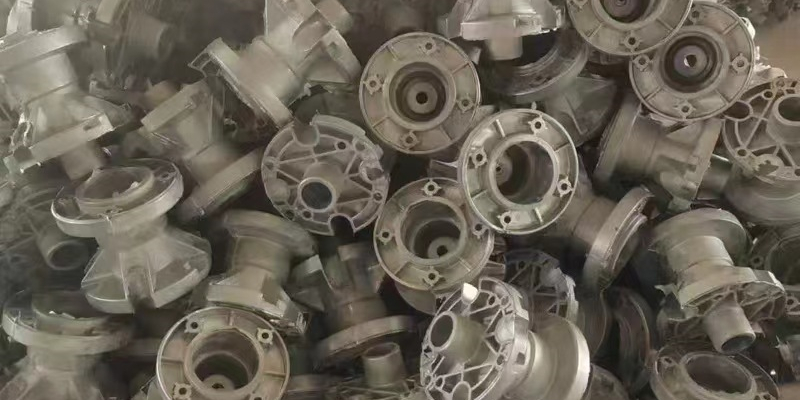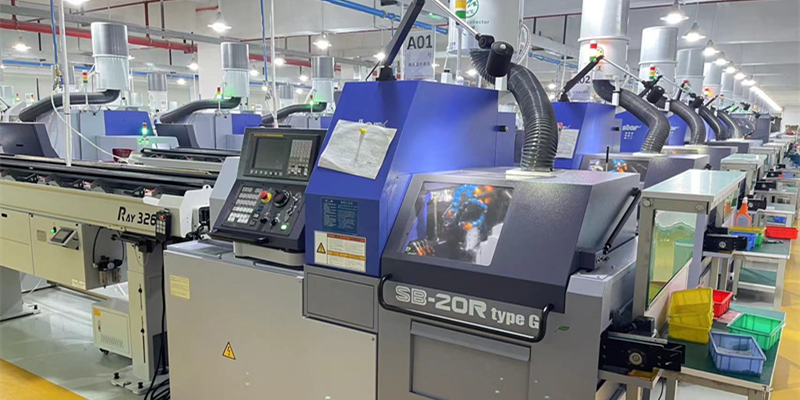High-volume production requires machining technologies that can efficiently and consistently produce large quantities of parts with precision and speed. Three main types of machining technologies stand out for their effectiveness in high-volume manufacturing:
Overview:
CNC (Computer Numerical Control) machining is a versatile and widely used technology in high-volume production. It involves the use of computer-controlled machines to precisely cut, shape, and finish materials into final products. CNC machines can operate in various modes, including milling, turning, and drilling, making them suitable for a wide range of applications.

Advantages for High-Volume Production:
Automation and Efficiency: CNC machines are capable of running continuously with minimal human intervention, leading to high levels of automation. This automation enhances efficiency and contributes to consistent and reliable production.
Precision: complex CNC machining offers exceptional precision and accuracy, ensuring that each part produced meets the specified tolerances. This is crucial for maintaining quality standards in high-volume manufacturing.
Versatility: CNC machines can handle various materials, including metals, plastics, and composites. Their versatility makes them suitable for producing a diverse range of components used in industries such as automotive, aerospace, and electronics.
Applications:
CNC machining is widely used in the production of components with intricate geometries, such as engine parts, chassis components, and electronic components. It is particularly effective for high-volume production runs where consistency and precision are paramount.

Overview:
Die casting is a manufacturing process that involves injecting molten metal into a mold cavity under high pressure. Once the metal solidifies, the mold is opened, and the finished part is ejected. This process is well-suited for high-volume production of complex and detailed parts.
Advantages for High-Volume Production:
High Production Rates: Die casting is known for its high production rates, making it ideal for large-scale manufacturing. The rapid solidification of molten metal allows for quick cycle times, contributing to increased throughput.
Complex Shapes: The die casting process enables the production of complex and intricate parts with tight tolerances. This is advantageous for industries that require detailed components in large quantities.
Material Efficiency: Die casting minimizes material waste as the molten metal is precisely injected into the mold cavity. This efficiency is beneficial for cost-effective high-volume maching production.
Applications:
Die casting is commonly used in the automotive industry for manufacturing components such as engine blocks, transmission housings, and structural parts. It is also utilized in the production of consumer electronics, appliances, and various industrial components.

Overview:
Swiss machining, also known as Swiss screw machining or Swiss turning, is a precision machining process that involves the use of a sliding headstock CNC lathe. This type of machining is particularly well-suited for small, high-precision parts.
Advantages for High-Volume Production:
High Precision: Swiss machining excels in producing highly precise components with tight tolerances. The process allows for simultaneous machining from multiple angles, resulting in intricate and accurate parts.
Reduced Setup Time: Swiss machines are designed for efficiency, with features such as sliding headstocks and guide bushings that minimize setup times. This is crucial for achieving quick turnaround in high-volume production.
Continuous Machining: Swiss machines are capable of continuous machining, meaning that multiple operations can be performed in a single setup. This contributes to increased productivity and reduced cycle times.
Applications:
Swiss machining is commonly used in the production of small, high-precision components such as medical devices, aerospace components, and electronic connectors. It is favored for applications where tight tolerances and intricate details are critical.
These three machining technologies—CNC machining, die casting, and Swiss machining—play pivotal roles in high-volume production across various industries. Each technology offers unique advantages, from the versatility of CNC machining to the high production rates of die casting and the precision of Swiss machining. The choice of machining technology depends on the specific requirements of the parts being produced, the desired production volume, and the industry's quality standards. In high-volume manufacturing, the efficient and precise nature of these machining technologies ensures the cost-effective and timely production of quality components.